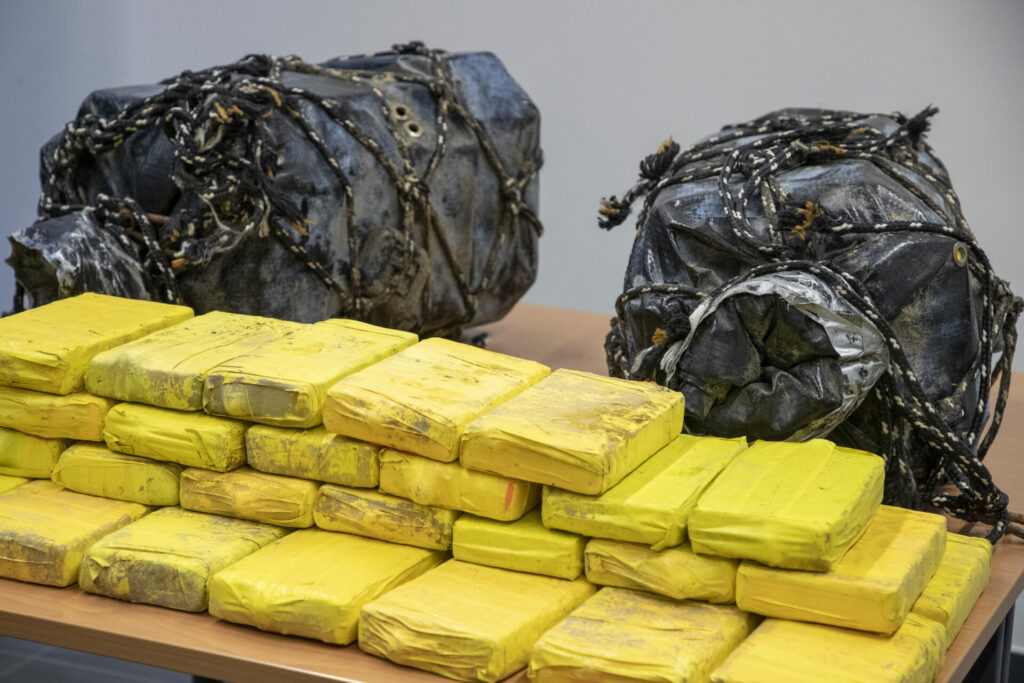Hundreds of tonnes of cocaine destined for the European Union were seized in the ports of departure in South America last year. Of those, 43 tonnes were supposed to reach Belgium.
These drug seizures were carried out as part of the Container Control Programme, which sits under the dual authority of a UN agency and the World Customs Organisation.
"Of the 220 tonnes, 183 tonnes were destined for the EU including 43 tonnes for Belgium," Bob Van den Berghe, deputy head of the Passenger and Cargo Border Team of the UN Office on Drugs and Crime, told Le Soir.
Another major port of destination remains Rotterdam, but authorities are also seeing an increase in drug containers that have the German city of Hamburg as the port of destination (39 tonnes). In 2023, Van den Berghe also noticed "an increase in seizures of cocaine in containers of organic products."
Incomplete figures
The Container Control Programme is still waiting for consolidated figures on seizures in the ports of Ecuador and Colombia (the two main export countries), "which could considerably increase the final figure."
The value of these tonnes of cocaine to criminal organisations is difficult to estimate. A gram of cocaine sells for around €50 in Belgium, sometimes more in other European countries.
However, the drug generally arrives fairly "pure" in Europe before being cut to maximise its profitability – making the market worth billions of euros.
Related News
- Belgium to develop 'explosive suitcase' to immediately 'deactivate' seized cocaine
- Three Belgian teenagers arrested for drug trafficking at Rotterdam Port
- Some 3.4 tonnes of cocaine discovered in the port of Antwerp
Last week, Belgium's national drugs commissioner Ine Van Wymersch announced that the authorities are currently developing a kind of "explosive suitcase" – a new system that can render seized drugs unusable as soon as they have been seized.
Van Wymersch compared the explosive case with those used during cash transports: a system that uses paint and was introduced after cash transports became the target of very violent robberies in the 1990s. The technology now being developed for seized cocaine will be similar.
The seized drugs would still have to be sent to the incinerator to be permanently destroyed, but the aim is to make it clear to criminals that once the Belgian Government has seized their cocaine, there is no use in trying to retrieve it. "That way, the storage and transport then do not pose any safety risks," Van Wymersch explained.
The "explosive case" is being developed for use in autumn 2024.

